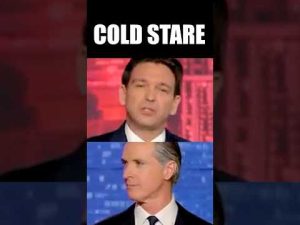In the latest discussion among political commentators, the mood is buoyant, with the notion that America may be entering a new renaissance. The talk is centered around renewed hope for the future and a collective belief that these next four years could be some of the best yet. One commentator expressed a longing for a return to a simpler time where common sense prevails, and policies center around real people instead of obscure theories birthed from elite academic circles. This optimism is not merely dream-spinning; it signifies a shift back toward reasonableness—a place where meritocracy and colorblind evaluations dictate the conversation.
The sentiment shared among these voices echoes a common theme: the feeling of liberation that many experienced during the previous administration. There’s a palpable sense that the political climate had become restrictive, reminiscent of ducking under oppressive regimes. For some, the election of Donald Trump was akin to escaping from a dark place—like making it out of a gulag. They reflect on the political strife of the last few years, where they observed acquaintances facing severe consequences for their beliefs, prompting discussions around the eerie reality of political repression. It’s a stark reminder of how fragile freedom can be when challenges arise from within one’s own country.
A particularly vivid anecdote shared highlights this tension. While enjoying a meal in Washington, one commentator recounted running into an old friend just out of prison. This friend’s incarceration stemmed from what could be classified as political crimes, a design that illustrates how the political landscape can engulf ordinary citizens and mar their lives. The atmosphere of fear created by overreaching law enforcement has led to a feeling of disillusionment among many, with fears of retaliation looming like a dark cloud. The experience seemed surreal, and the commentator never thought he would witness such a state in America.
As the conversation flowed, tales of Trump’s down-to-earth nature emerged and offered a refreshing contrast to the gravity of earlier reflections. An amusing yet poignant recollection of a personal encounter on Air Force One revealed that despite his immense power, Trump remained relatable, almost human. The tale of sharing kosher hot dogs while discussing political matters was a reminder that at his core, the former president maintained an approachability that resonated well with many. It seemed to illustrate the notion that, irrespective of political standing, everyone shares basic human needs—like a good meal and a sincere conversation.
Conclusively, the commentators wrapped up their exchanges by emphasizing a hopeful outlook as they envision a future built on common sense and fairness. The conversation reflects a yearning not just for political change but for a culture that encourages open discourse, equitable treatment, and inclusivity. Like a lighthouse shining through storm clouds, there is belief that a pathway back to reason and normalcy can be navigated, as long as citizens remain engaged and pivotal in shaping the national dialogue moving forward.







